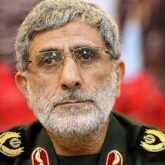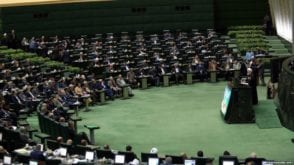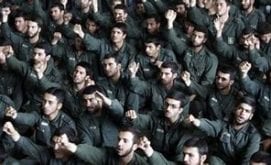RFL/RE – Dozens of independent Iranian lawyers were imprisoned during the monthslong antiestablishment protests that erupted last September. Most had represented jailed protesters or been critical of the authorities on social media.

Many of the lawyers were later freed under an amnesty announced by Iran’s Supreme Leader Ayatollah Ali Khamenei in February.
But in recent days, around 20 lawyers across the country have been summoned. It was not clear if they were facing new charges or had been called in for questioning.
“The amnesty gave me hope but these actions that are taking place are frustrating,” lawyer Ali Mojtahedzadeh said on Twitter on May 11, adding that he did not know why he had been summoned.
“The lawyers who have been summoned are lawyers who were [defending protesters] or those who have been active on social media,” said Mojtahedzadeh.
Mitra Izadifard, a lawyer from the northeastern city of Mashhad, told the reformist daily Etemad that she and several other lawyers had been called in to appear before a court in Tehran on May 22. Izadifard said she was summoned due to some of her “tweets and previous legal activities.”
Why It Matters: The authorities appear to be renewing pressure on independent lawyers who have taken on sensitive political cases or criticized the clerical establishment.
Independent lawyers have been under systematic pressure and harassment for decades in the Islamic republic. Many have been forced into exile or ended up in jail, including prominent human rights lawyer Nasrin Sotoudeh.
What’s Next: It is unclear if the authorities are trying to intimidate or imprison again those lawyers who have continued to criticize the clerical regime since their release.
Since the antiestablishment protests subsided, lawyers have been vocal in their criticism of the authorities, including their new attempts to enforce the hijab law.
Several lawyers, including Mohsen Borhani, have said publicly that the measures are a violation of the Islamic republic’s laws.
Stories You Might Have Missed
Nearly eight months ago, 21-year-old Erfan Rezai was killed during Iran’s brutal crackdown on protests. Despite threats and pressure, his mother has waged a social media campaign to demand justice. In an interview, Farzaneh Barzekar said she holds little hope that real justice will be served.
Afghan migrants in Iran are finding it difficult to carry out the most routine transactions because they cannot obtain the bank cards they need to access mobile phone services, metro tickets, and even their daily bread. They say the restrictions, which affect long-term immigrants and undocumented arrivals alike, are making life increasingly difficult.
What We’re Watching
Azerbaijan said on May 16 that it arrested at least seven men who were allegedly recruited by Iran to destabilize the Caucasus nation.
In a statement, Baku said the men were plotting a “violent overthrow of the government and the assassinations of prominent personalities and senior officials.”
The arrests were the latest in a series of detentions of people the Azerbaijani government says were working for Iran.
Why It Matters: Relations between the two neighbors have become increasingly strained in recent months, particularly since an attack on the Azerbaijani Embassy in Tehran.
In January, a lone gunman stormed the embassy, killing one person. Azerbaijan blamed Tehran for the incident, which it described as a terrorist attack. The Iranian Foreign Ministry said the gunman had personal motives.
Tensions were further heightened in March following a failed assassination attempt in Baku on a parliamentarian in Azerbaijan who has been critical of Iran.
Last month, Azerbaijan expelled four Iranian diplomats in Baku. In response, Iran expelled the Azerbaijani ambassador in Tehran.
Baku has accused Iran of backing Armenia in a long-standing conflict over Azerbaijan’s breakaway Nagorno-Karabakh region. Iran has long blamed Azerbaijan for fueling separatist sentiments among its sizeable ethnic Azeri minority. Tehran has also been critical of Baku’s deepening relations with Israel, Iran’s archenemy.
That’s all from me for now. Don’t forget to send me any questions, comments, or tips that you have.
Until next time,
Golnaz Esfandiari
 Shabtabnews In this dark night, I have lost my way – Arise from a corner, oh you the star of guidance.
Shabtabnews In this dark night, I have lost my way – Arise from a corner, oh you the star of guidance.



